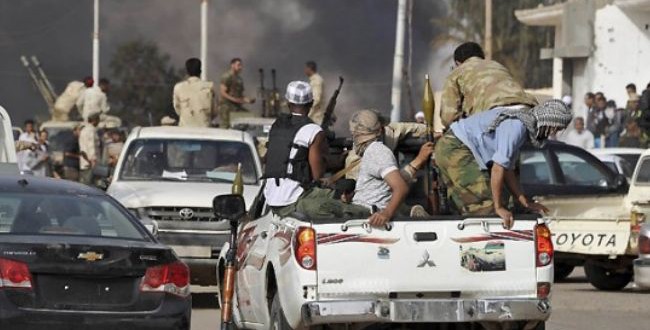
Libya: Senior intelligence official shot dead in Benghazi as lawmakers reject newly elected Prime Minister
On Thursday, a high-level government intelligence official, Colonel Ibrahim al-Senussi Akila, was assassinated by gunmen in Benghazi.
Colonel Akila, Head of General Intelligence in Benghazi, was reportedly shot and killed near the Medical Center in the city. According to sources, unknown assailants had opened fire on his car, killing him instantly.
Benghazi was the epicenter of the uprising in 2011 which led to the ousting of Muammar Gaddafi. Ever since, it has been afflicted with violence in which dozens of foreigners, judges and security force members have been killed.
Last July, forces seeking self-governance for the Cyrenaica region in Benghazi occupied four important oil terminals, reducing export to 250,000 barrels per day from 1.5 million barrels per day, costing $14 billion in revenue. The government had struck a deal in April, re-taking control of two terminals. Negotiations for the other two are still going on.
On Monday, the Speaker of the Parliament had confirmed Ahmed Miitiq’s appointment as the new Libyan Prime Minister after chaotic voting in the General National Congress, in which tensions between the liberals and the Islamists were on clear viewing.
However, several lawmakers have rejected Miitiq’s election. Ali al-Hassi, the spokesman for a self-proclaimed eastern Libyan autonomous government, rejected Miitiq’s election. “We refuse to deal with Mr Miitig because his election was illegal”, he said on Al-Nabaa television,Abd Rabou al-Baraassi, head of the Cyrenaica body, called for fresh elections.
In the recent past, being the Libyan Prime Minister has proven to be both dangerous and challenging. Ex-Prime Minister Ali Zeidan was voted out of his post by the Parliament for failing to prevent the capture of an oil shipment by rebels in March. Last year, Zeidan was kidnapped and held for several hours by gunmen before he was freed.
 The Arab Democrat The Latest From The Arab World
The Arab Democrat The Latest From The Arab World





